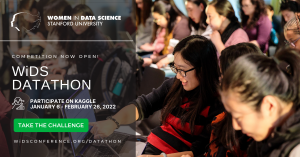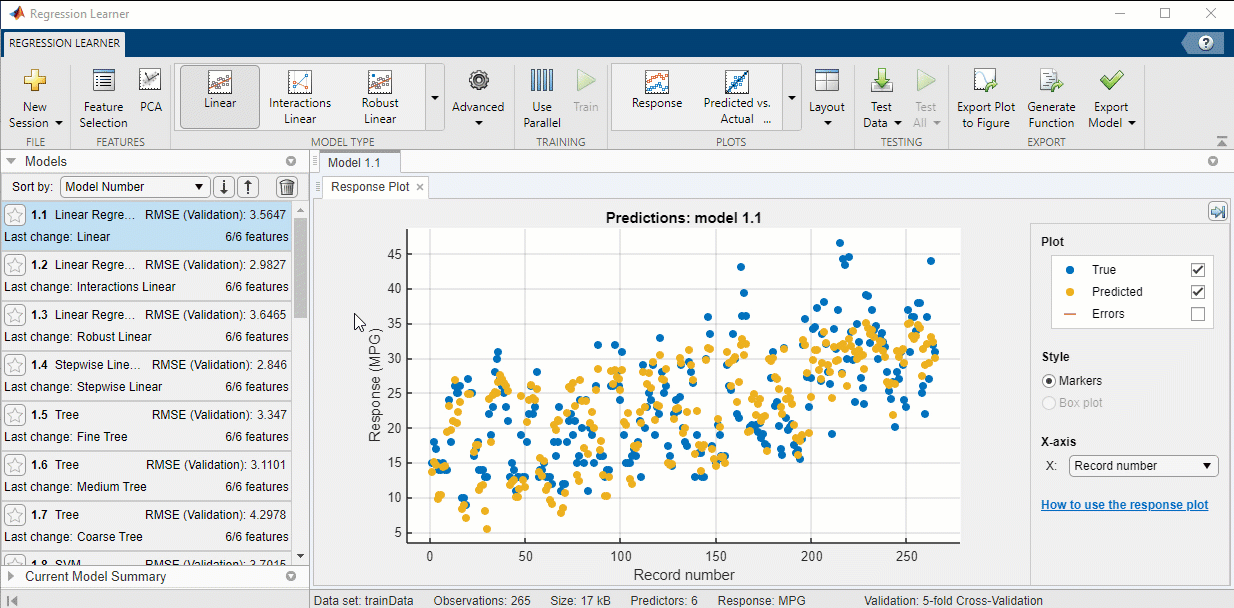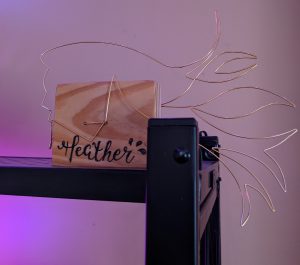Getting Started with AI Through Datathons and Competitions
This post is from Heather Gorr, MATLAB product marketing. You can follow her on social media: @heather.codes, @heather.codes, @HeatherGorr, and @heather-gorr-phd. This blog post covers several competitions and why they are important for your career.
 WiDS Datathon Announcement
MathWorks has sponsored the past few WiDS Datathons. These data sets have important social impact and are quite interesting to work with, applicable to many industries. Participants can use MATLAB for the competitions, which is helpful to explore and tune many different models quickly using apps and familiar syntax ( if needed!).
WiDS Datathon Announcement
MathWorks has sponsored the past few WiDS Datathons. These data sets have important social impact and are quite interesting to work with, applicable to many industries. Participants can use MATLAB for the competitions, which is helpful to explore and tune many different models quickly using apps and familiar syntax ( if needed!).
 Using Regression Learner to train and compare models
Another important note about the WiDS Datathon is that half of each team must identify as women. This is profound and encouraging, as a typical Kaggle competition has less than 20% women participants [cite https://www.widsconference.org/blog_archive/the-women-in-data-science-wids-datathon-2022-is-now-live-on-kaggle.] In 2021, WiDS datathon over 80% of participants were women coming from 86 countries across 6 continents, so it’s a wonderful opportunity to engage with a diverse global community and learn together. I’ve been participating in WiDS events for years and I love the community aspect. Below is a nice gift of beautiful custom artwork I received from local organizers in Fortaleza after speaking at an event!
Using Regression Learner to train and compare models
Another important note about the WiDS Datathon is that half of each team must identify as women. This is profound and encouraging, as a typical Kaggle competition has less than 20% women participants [cite https://www.widsconference.org/blog_archive/the-women-in-data-science-wids-datathon-2022-is-now-live-on-kaggle.] In 2021, WiDS datathon over 80% of participants were women coming from 86 countries across 6 continents, so it’s a wonderful opportunity to engage with a diverse global community and learn together. I’ve been participating in WiDS events for years and I love the community aspect. Below is a nice gift of beautiful custom artwork I received from local organizers in Fortaleza after speaking at an event!
 Custom WiDS artwork from WiDS Fortaleza event organizers
Custom WiDS artwork from WiDS Fortaleza event organizers
 Example data from 2021 Deep Chimpact Competition to estimate distance to animals
Example data from 2021 Deep Chimpact Competition to estimate distance to animals
Getting Started with AI Through Datathons and Competitions
One of the best ways to get started with machine learning and deep learning is to try it! Working on real data is some of the most useful experience when you’re starting out -and throughout your career. Real-life data sets are messy and many decisions must be made well before training models. There are many resources to find example problems with real data, but datathons and hackathons are especially useful and fun. You can compete to win (cash!) or even practice and observe to learn from the experience and others’ solutions. Often, you compete in a team, which is another great way to collaborate and learn from our peers. MathWorks hosts a number of competitions throughout the year. In this post we’ll discuss recent hackathons and highlight the current Women in Data Science (WiDS) Datathon open through February 26, 2022.Women in Data Science (WiDS) Datathons
 WiDS Datathon Announcement
MathWorks has sponsored the past few WiDS Datathons. These data sets have important social impact and are quite interesting to work with, applicable to many industries. Participants can use MATLAB for the competitions, which is helpful to explore and tune many different models quickly using apps and familiar syntax ( if needed!).
WiDS Datathon Announcement
MathWorks has sponsored the past few WiDS Datathons. These data sets have important social impact and are quite interesting to work with, applicable to many industries. Participants can use MATLAB for the competitions, which is helpful to explore and tune many different models quickly using apps and familiar syntax ( if needed!).
2022: Using Data Science to Mitigate Climate Change
This time it’s a climate change data set, this is a social issue using real data for an impactful problem. The challenge is to predict building energy consumption accurately. The data set includes building characteristics, climate and weather data for the regions in which the buildings are located. Getting better energy predictions can help maximize emission reductions through energy efficiency. There are several examples to help you get started doing this in MATLAB, and Grace Woolson wrote an excellent tutorial on building regression models and comparing them. Grace and I also recently held a YouTube livestream workshop based on this tutorial to help get started using a similar data set: predicting vehicle MPG (also important for climate considerations). Using Regression Learner to train and compare models
Another important note about the WiDS Datathon is that half of each team must identify as women. This is profound and encouraging, as a typical Kaggle competition has less than 20% women participants [cite https://www.widsconference.org/blog_archive/the-women-in-data-science-wids-datathon-2022-is-now-live-on-kaggle.] In 2021, WiDS datathon over 80% of participants were women coming from 86 countries across 6 continents, so it’s a wonderful opportunity to engage with a diverse global community and learn together. I’ve been participating in WiDS events for years and I love the community aspect. Below is a nice gift of beautiful custom artwork I received from local organizers in Fortaleza after speaking at an event!
Using Regression Learner to train and compare models
Another important note about the WiDS Datathon is that half of each team must identify as women. This is profound and encouraging, as a typical Kaggle competition has less than 20% women participants [cite https://www.widsconference.org/blog_archive/the-women-in-data-science-wids-datathon-2022-is-now-live-on-kaggle.] In 2021, WiDS datathon over 80% of participants were women coming from 86 countries across 6 continents, so it’s a wonderful opportunity to engage with a diverse global community and learn together. I’ve been participating in WiDS events for years and I love the community aspect. Below is a nice gift of beautiful custom artwork I received from local organizers in Fortaleza after speaking at an event!
 Custom WiDS artwork from WiDS Fortaleza event organizers
Custom WiDS artwork from WiDS Fortaleza event organizers
2021: Deep Chimpact
Going back to the last WiDS Datathon “Deep Chimpact: Depth Estimation for Wildlife Conservation”, I loved it. The objective was to estimate the distance to animals in trail camera footage to help wildlife monitoring and conservation. There were many interesting approaches to this including using optical flow to preprocess the videos and a deep learning model (pre-trained CNN) for the distance. Another approach included estimating the optical flow in MATLAB, then importing an existing PyTorch model, discussed in this blog post. These are just two examples, but you can look through many submissions on Kaggle to find piles of innovative solutions! Example data from 2021 Deep Chimpact Competition to estimate distance to animals
Example data from 2021 Deep Chimpact Competition to estimate distance to animals
Career Development
Another valuable aspect to join these competitions is career development opportunities. It’s incredibly valuable getting practice, working with others, and exploring possible career paths. I’d recommend checking out any ‘job fairs’ associated with conferences and competitions and joining panel discussions. For example, MathWorks is hiring in many related areas and you can connect with us if you are interested in career opportunities)MathWorks Hackathons
Hopefully you are convinced that hackathons are a great way to get started on your AI journey. MathWorks has partnered with Major League Hacking (MLH) to help you use MATLAB and Simulink to bring your ideas to fruition. Check out the Awesome MATLAB Hackathons repository for getting started resources and to learn more about our support for MLH Hackathons. Sign up to participate in a MathWorks sponsored MLH hackathon, use MATLAB or Simulink and you could win some great MATLAB Swag. Here are some examples of some past winners of the Best Use of MATLAB award at MLH hackathons:- Read the Room – Hacks for the Virtual Classroom: Read how MATLAB was used to build this digital education hack designed to help educators and students improve their experience in the virtual classroom of today
- MATLAB, Machine Learning and Movies... The Perfect Combination: Can’t figure out the next movie to watch? Let MATLAB and Machine Learning pick it for you. This app recommends movies for you based on a poster of a movie you love.
Resources
- 범주:
- Deep Learning









댓글
댓글을 남기려면 링크 를 클릭하여 MathWorks 계정에 로그인하거나 계정을 새로 만드십시오.